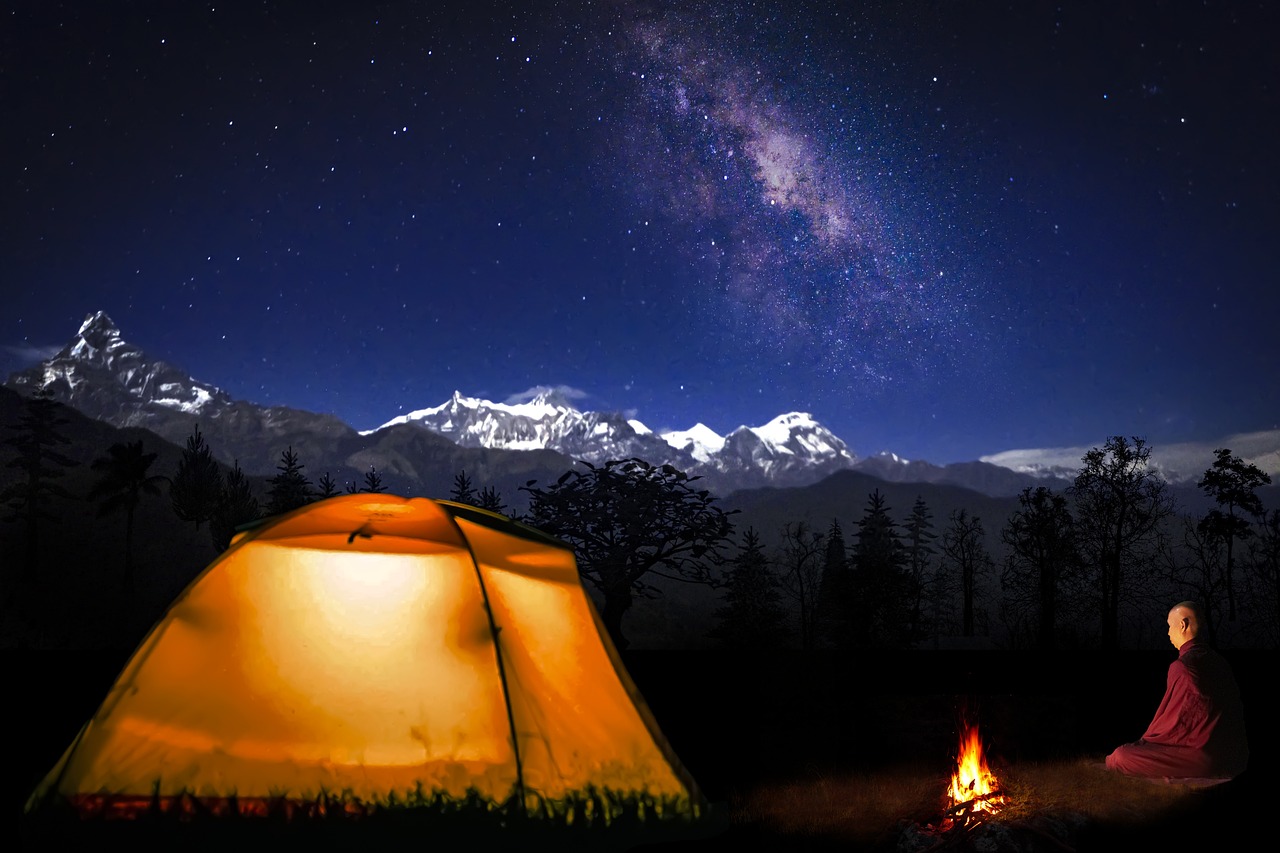Ultralight hiking is often criticized as being foolish, negligent, or even dangerous. While in some cases this can be true, the essence of the ultralight mentality is to test one’s discipline and level of comfort. To me, its like a game. I want to see how light I can go, how much I can test my level of comfort. To be clear, I am not putting myself in a dangerous position by doing without the things that I need. I am actually ONLY carrying the things I truly need. In my opinion, the best part of hiking is being on the trail, walking, taking in the sights, sounds, smells, and emotions of being in nature. Comfort on the trail is the most important thing to me. However, I want my camping to be simple and easy.
It can take years, even decades, to transition safely and comfortably to an ultralight pack load. It has taken me ten years to go from the standard 25-30 pound base weight to an amazing 8 pound base weight. Over the years, I have tested my limits of comfort. I have tried and failed at things. All the while, learning and adjusting. In my opinion, the Ultralight Philosophy comes down to five main points.
1. Learning to test your limits of comfort.
The fact is, if you’re carrying an ultralight pack load, you’re going to be doing without many of the typical comforts you might want. This doesn’t mean that you have to endure any physical pain. Your pack can still be comfortable to carry. You can still be protected from the cold, rain, and sun. You can still have plenty to eat. Much of the ultralight versions of gear, however, have less features than the standard versions. This means packs with less pockets and compartments, smaller and simpler shelters, sleeping quilts without zippers or hoods. This also means doing without some of the nonessential things that might make life on the trail a bit easier. You might have to do without those comfy, clean, camp shoes, a large, fast flowing water filter, or a thick, soft, self-inflating sleeping pad.
2. Coming up with creative ways to lighten your load
One of the most creative ways to lighten your load is to use one item for multiple purposes. Take, for example, using a sit pad as a frameless pack support and also as a foot section of your sleep system. This is one of the ways I increased the functionality and comfort of my pack and cut out the need for a full length sleeping pad. Another prime example is using your trekking pole(s) as a support for your tent. That way you can ditch the tents that require heavy and cumbersome segmented poles and use the trekking poles you are already carrying. One more idea is to remove the parts of an item that have little or no use. An often criticized and mocked idea is removing the handle of a toothbrush. The toothbrush is still fully functional but may be slightly less comfortable to use. The fact is, there are countless ways to creatively lighten your load. It just takes a little thought and sacrifice.
3. Putting in a little more effort to achieve the same results
Sometimes the simplest way to lighten your load is to just do things the harder way. I’ll use water filtration as another example. Wouldn’t it be nice to just fill up a big bladder full of water, attach the filter, hang it from a tree, and let gravity do all the work? Of course, it would. However, you would need clips, hoses, bladders, and a big, easy flowing filter. That adds up to a lot of extra weight. Sure, it would be easy and convenient, but with a small, compact water filter and a one liter bag, you can get the same results at a fraction of the weight. Another good example is the backpack. Having a nice sturdy pack with lots of pockets and features is going to be really comfortable and convenient. But, guess what? All those zippers, pockets, straps, and framing weigh something. With some effort and patience, you can learn to effectively use a much simpler pack. By packing tightly and thoughtfully, you may find that you don’t need a frame. By having the foresight to place items you will likely need throughout the day in more reachable places, you may find that you don’t need all those extra pockets. This concept can be applied to many other aspects of your backpacking experience. You may find that it is worth it to put in a little more effort to save weight.
4. Prioritizing hiking over camping
One of the main goals of ultralight backpacking is to enhance the hiking part of the experience. While this idea is mainly geared toward thru hiking where covering many miles per day is more practical, it can be applied to any backpacking trip. To me, the backpacking experience is about walking through nature and feeling like you have nothing weighing you down. With a light pack, you can take in more sights, sounds, smells, and feelings. You can put in longer days and get to camp a little later. Once you get to camp, it’s not about kicking off your shoes, slipping into your sandals, plopping down in your camp chair, and making an extravagant meal. It’s about getting the food and sleep that you need as easily as possible and waking up to get back out on the trail. Sure, camping in nature is a wonderful experience in itself and having a comfortable and enjoyable camping experience has its proper place but that’s just not what this is about.
5. Taking extra care of your gear
The sad truth is, ultralight backpacking gear is usually going to be more expensive and less durable. This means that extra care must be taken when using it. It might take a little more diligence in selecting a place to set up your tent. Clearing out rocks and sticks before laying it out. It might mean watching out for branches to snag on while wearing your rain jacket. It might mean field patches and repairs of gear or dealing with a broken piece of critical equipment. If you learn to have more patience and care when using your gear, then it will last a long time.
As you have probably come to notice, ultralight backpacking has a lot to do with patience and thoughtfulness. Doing things the long, slow, and careful way is a big part of the ultralight philosophy. As you learn to exercise patience and thoughtfulness in backpacking, you will come to enjoy the art of it. Of course, ultralight backpacking is not for everyone, but if you really want to start lightening your pack, I encourage you to lay out all your gear and look it over. Pick out some of the things that you hardly ever use or a few items that your feel you could do without. Upgrade one of your heaviest items to something more lightweight. If you really are serious about shedding some pack weight then the possibilities are endless. You just have to challenge yourself.


Leave a Reply